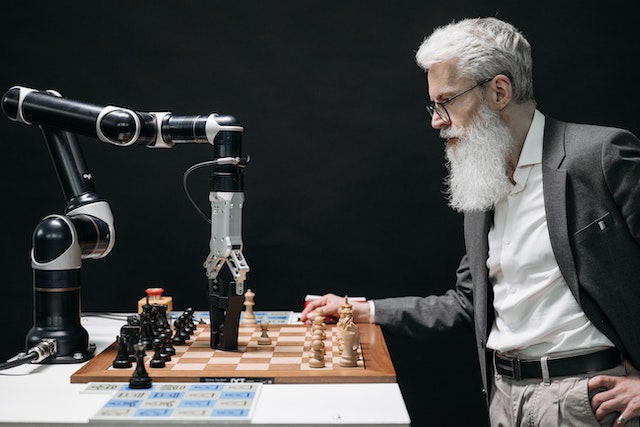Applying next-generation AI to the Microsoft Supply Chain Platform
For over two decades, customer relationship management (CRM) and enterprise resource planning (ERP) software has been defined by manual entry and high-contact data processes. Since then, businesses have made progress in automating many manual processes in various ways, but it has largely reached a plateau. Our 2023 survey of business trends revealed that 9 out of 10 employees hope to use artificial intelligence to reduce such repetitive tasks arising from their jobs.
Supply chains have been the primary area for the application of AI due to the large amount of critical business data and processes it contains. Supply chains have evolved over the years with emerging technologies and innovations that allow businesses to optimize their operations, reduce costs and increase customer satisfaction. However, while statistical models are used in processes such as stock management, forecasting, production planning, and scheduling, there has been no significant shift beyond algorithm development in the sector. No learning was applied to make supply chain processes smart and self-regulating. Next-generation AI will transform the industry by making it more agile, efficient and responsive to change.
In March, Microsoft announced Microsoft Dynamics 365 Copilot, introducing the world’s first AI co-pilot for ERP and CRM applications. With next-generation AI capabilities in Dynamics 365 Copilot, these multi-contact, painstaking processes can be transformed with interactive AI-powered assistance.
With Copilot, you can further unlock the potential of ERP by combining data and artificial intelligence to reduce time spent on unfulfilled tasks and accelerate execution speed and business results.
We are excited about bringing next-generation AI to virtually every business function, and in particular the opportunities AI has on the Microsoft Supply Chain Platform. In this post, we look at both the evolution and current state of artificial intelligence in supply chain management (SCM) and share our view on next-generation AI.
Industry 4.0 is artificial intelligence
The Fourth Industrial Revolution is opening doors that further change how we work and what we focus on throughout the workday. From the industrial plant automation of the 1960s to the era of smart supply chain digital twins of the 2020s, we’ve come a long way. We now have significant technological advances that can transform traditional supply chains into the next generation of cognitive supply chains. These cognitive supply chains can proactively predict and self-correct disruptions, trigger rescheduling and provide smart recommendations. Thus, it enables humans and artificial intelligence to work together to quickly respond to changing environments in real time.
In the age of artificial intelligence, tools such as neural networks and machine learning provide ways to automate personal workflows and processes. Yet low-code applications, natural language processing, and productive AI will not replace human innovation. On the other hand, it will increase and expand our expertise and capability. That’s why at Microsoft we believe AI will define new ways for people to increase their impact, abilities and unique potential.
A brief history of artificial intelligence in supply chain management processes
The first application of artificial intelligence in SCM is a so-called expert system known as an inventory management assistant (IMA). The IMA was designed in 1986 to improve spare parts supply and reduce safety stock for the US Air Force. 2 From there, the 1990s saw a broad resurgence in interest in the decades-old concept of artificial intelligence. As a result, AI became commercially available on a limited basis in SCM applications during this time.
In the 2000s, computing power continued to increase while hardware costs fell sharply, making investment in AI affordable. However, widespread adoption of AI in SCM really took off in the 2010s with the rise of the Industrial Internet of Things (IIoT) and the consequent acceleration in digital transformation. Together, these factors led to an explosion in the amount of data produced in supply chain processes, marking the beginning of big data in the supply chain.
Outside of the supply chain, machine learning algorithms have matured and evolved into efficient and almost standard-like features like the Netflix recommendation engine. At the same time, SCM use cases were taking shape and starting to deliver value. Early applications of machine learning came in the areas of demand forecasting, which uses regression models to achieve high forecast accuracy, short-term demand detection using pattern recognition, asset anomaly detection, and inventory optimization.
Today, AI is used in a wide variety of applications, including image and speech recognition, natural language processing, and autonomous vehicles. Newer breakthroughs like Dall-E2 and ChatGPT from OpenAI are rapidly opening new doors, as evidenced by the Dynamics 365 Copilot we recently rolled out. But most companies still focus on analytics and promotional use cases, such as forecasting demand or planning production.
That’s why organizations have yet to fully explore the potential of AI, which includes self-learning supply chains, more advanced supply chain algorithms, and recognizing patterns in big data beyond human perception. AI can automate many of the iterative decisions in SCM and interact with supply chain systems in a human context, but this requires a platform to connect legacy and modern solutions to consolidate massive and growing amounts of supply chain data.

